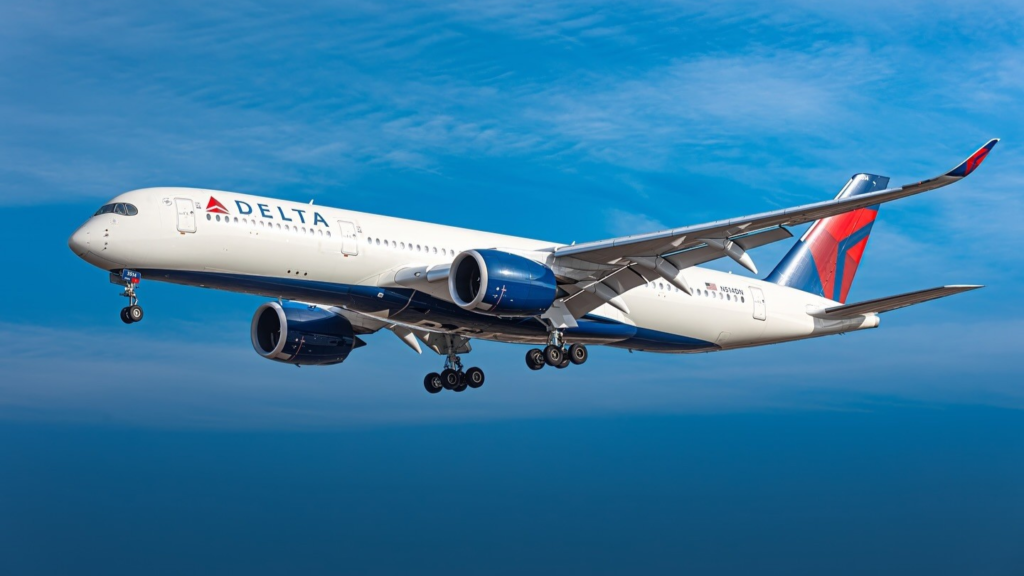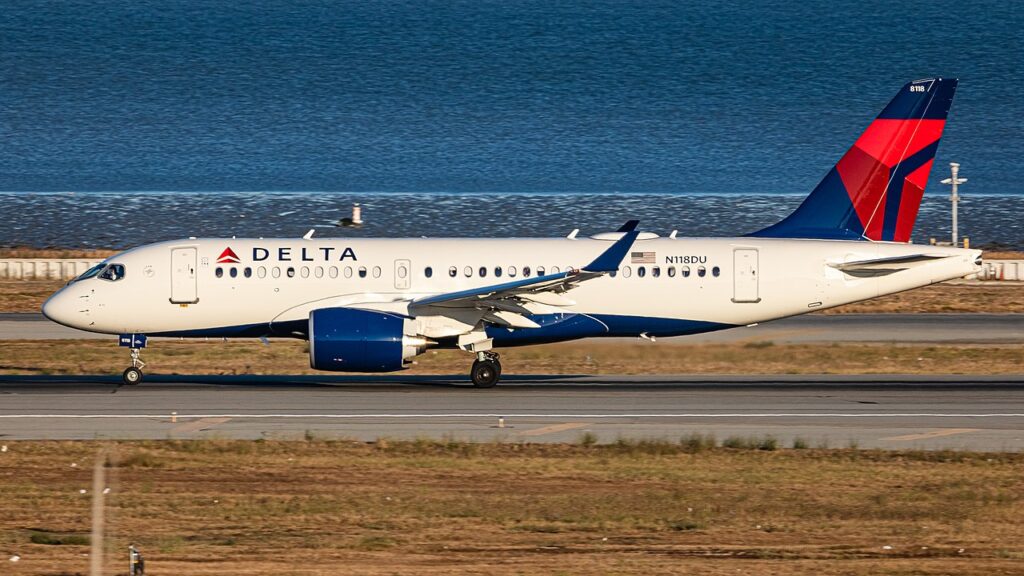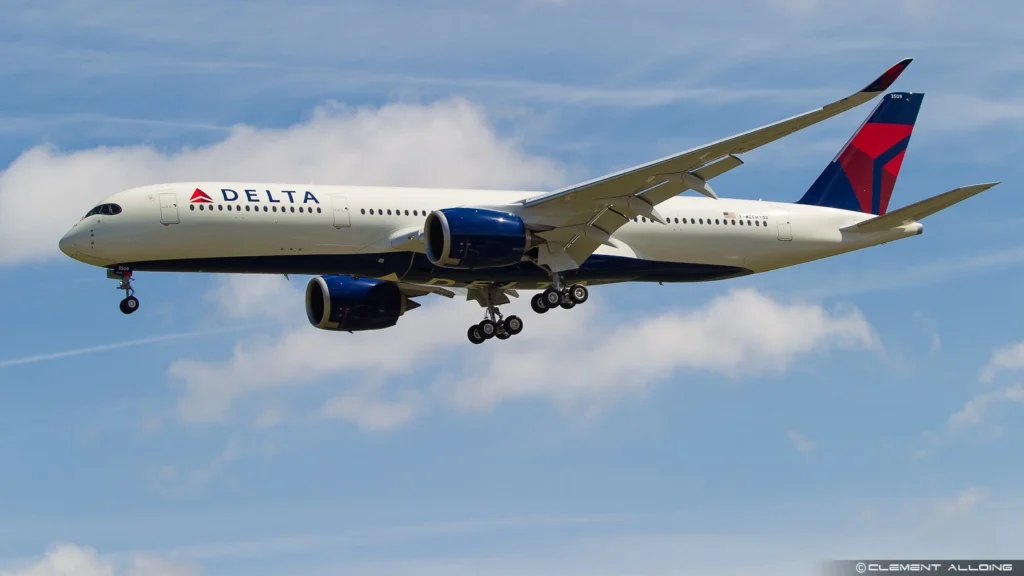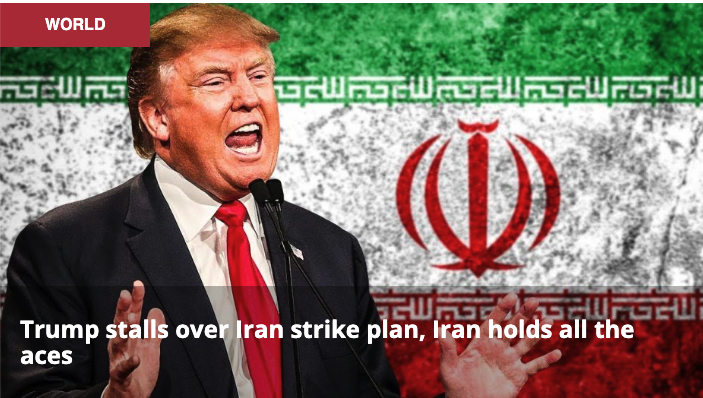
ATLANTA- Delta Air Lines (DL) has found a strategic solution to avoid paying tariffs on new Airbus aircraft despite the Trump administration’s 10% import levy.
Delta’s latest Airbus A350-900, manufactured in Toulouse (TLS), is cleverly routed through Tokyo Narita (NRT) before entering service, allowing the airline to bypass classification as a “new” import.
Ed Bastian, Delta Air Lines’ CEO, confirmed that the airline would not pay tariffs on upcoming Airbus deliveries, using international routing and exclusive international operations to comply with regulations while maintaining fleet expansion plans.
 Photo: Cado Photo Instagram
Photo: Cado Photo InstagramDelta Avoids Trump Tariffs
Delta Air Lines (DL) faced a significant hurdle when the Trump administration imposed a 10% tariff on new Airbus aircraft imported from Europe.
However, the airline devised an intelligent strategy by rerouting brand-new aircraft through non-US destinations before introducing them into service, flagged by OMAAT.
The US defines a “new” aircraft as one that has not flown operational flights other than production tests or direct deliveries.
If a plane operates a revenue flight outside the European Union before arriving in the US, it no longer meets the definition of a “new” import, thereby avoiding tariffs.
Recently, Delta took delivery of an Airbus A350-900 (registration N528DN) from Toulouse (TLS), initially flying it to Tokyo Narita Airport (NRT).
From there, it entered into Delta’s international service network without incurring import duties. A similar strategy was employed during the first Trump administration when tariffs were initially introduced on European goods, including aircraft.
Delta further avoids tariffs by using these aircraft exclusively for international routes. As long as the planes are not permanently based in the US for domestic operations, they remain exempt from being classified as imported goods under the tariff rules.
 Photo: By JacobAviation – Own work, CC BY-SA 4.0, https://commons.wikimedia.org/w/index.php?curid=84737806
Photo: By JacobAviation – Own work, CC BY-SA 4.0, https://commons.wikimedia.org/w/index.php?curid=84737806US Tariffs on Airbus
Under current US regulations, imported new Airbus jets are subject to a 10% tariff. However, Airbus manufactures some aircraft, such as certain A220 and A320-family models, at its US facility in Mobile, Alabama, exempting them from tariffs.
Parts imported separately might still face charges, but complete aircraft built domestically are unaffected.
The Trump administration defined “new” aircraft strictly, leading airlines like Delta to innovate around these restrictions.
By ensuring aircraft first serve routes outside the EU and employing them internationally, airlines like Delta effectively minimize their financial exposure to punitive trade measures.
Additionally, Delta’s delivery strategies now involve receiving some Airbus A220 aircraft manufactured at Airbus’ Mirabel facility in Quebec, Canada. These aircraft benefit from different tariff treatment due to the US-Canada trade agreements.
 Photo: PATRICK DESROCHERS | Delta New Hub
Photo: PATRICK DESROCHERS | Delta New HubOperational Challenges
While easy for widebody aircraft like the A350-900, exclusively operating internationally presents logistical challenges for narrowbody planes such as the A220.
Widebody jets naturally serve long-haul international routes. However, narrowbodies are often utilized for shorter domestic flights.
To comply, Delta may operate flights between Canadian, Mexican, Caribbean, and US destinations, ensuring no aircraft is classified as “imported.”
This operational strategy demands meticulous fleet management and route planning, increasing the airline’s logistical complexity as more aircraft are delivered under this model.
Similar fleet management issues have caused operational incidents in the past. For instance, American Airlines (AA) mistakenly operated a non-ETOPS-certified Airbus A321 to Hawaii, demonstrating how critical precise compliance is under such strategies.
 Photo: Clément Alloing
Photo: Clément AlloingCEO’s Stand on Tariffs
Delta CEO Ed Bastian has consistently reaffirmed that Delta will not absorb tariff costs. His comments highlighted either a shift in delivery logistics or cost absorption by Airbus.
Recent events confirm that Delta pursued the logistics strategy, ensuring the delivery of aircraft without incurring additional costs.
By working closely with Airbus and using creative international deliveries, Delta maintains its fleet growth plans without financial strain from trade policies.
This strategic approach underscores Delta’s adaptability in navigating regulatory and operational challenges.
Feature Image by Clément Alloing | Flickr
Stay tuned with us. Further, follow us on social media for the latest updates.
Join us on Telegram Group for the Latest Aviation Updates. Subsequently, follow us on Google News
Delta Air Lines Innovates Fuel Efficiency with Shark Skin Riblets on 767s
The post Delta Avoids 10% of Trump Tariffs on New Airbus Aircraft with Smart Move appeared first on Aviation A2Z.


















